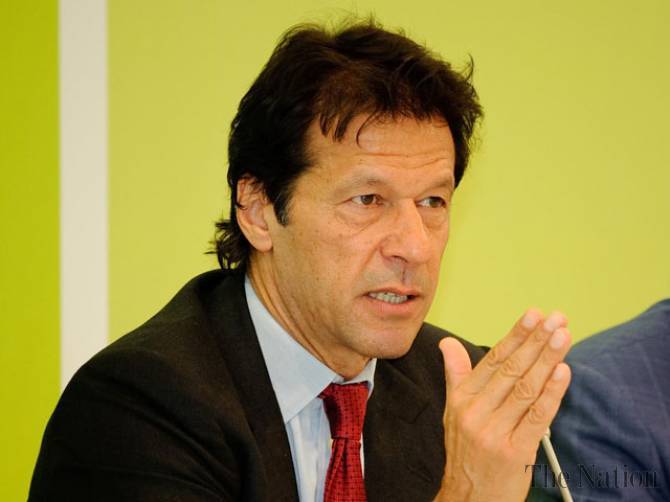Truth has not been considered a political virtue in any age. Politicians in any corner of the globe are not known for speaking the truth. Tall and false claims are made, political statements are issued to score points over rivals, and policy positions are subject to change depending upon whether at the moment one is part of the ruling clique or sits on the opposition benches. But closer observations of politics suggest that even in the political field, there is a distinction between spheres where truth is less expected and those where any transgression is deemed unacceptable. There are instances that clearly come in the first or second category but the exact boundary remains undefined. For example, statements during political campaigns are often exaggerated and the intended public audiences also do not hold occupants of political offices to account rigorously on the truthfulness of election promises. On the other hand, the infractions of the inviolate code in certain matters may threaten political career of the actor concerned (like the Watergate scandal). But, the variety of occasions where truth is considered sacrosanct varies in different societies, owing to differences in cultural traditions and levels of openness. Another corollary observation is that even a lie or an untruthful statement of the first category has the potential to seriously damage a politician’s credibility if he keeps constantly repeating it publicly.
The public reaction to a situation, when a political lie has been exposed, sets the standards of truthfulness in domestic political discourse. A study of three incidents of the recent political history in Pakistan will provide some insights into how easily our politicians can walk away with untruthful statements than is possible in other societies and what are the permissible limits. Consider PML-N’s stance on the exile deal concluded between the Sharif family and then Chief Executive, Pervez Musharraf. The PML-N leaders kept changing their positions from completely denying the existence of the deal to acknowledging an agreement to the effect of remaining out of active politics only for five years. Notwithstanding the illegality and unconstitutionality of Pervez Musharraf’s October 12 step, a national political leader is expected to come out and clarify the situations to the nation, however disagreeable it may be. But the untruthful public stance of Sharif brothers did not impair their credibility among the general public.
Second, let’s scrutinize the violation by PPP of the Bhurban accord regarding restoration of judiciary. President Zardari said that political agreements are not like the precepts of Holy Quran and Hadith. It seemed to inflict some damage to his personal reputation for the time being as President Zardari had also a track record of serious allegations of financial irregularities. But, the harmful effect of Zardari’s act of treachery did not become real and instead he earned the titles like ‘king of politics’, a ‘sharp politician’.
Third, in an interview last week, Imran Khan termed PTI’s allegation of 35-punctures a political statement. Over the past two years, we saw Imran Khan first accepting the election outcome in national interest, forming KP government on the basis of election results and then a year later, declaring a long march against the government on the pretext of delay in disposal of petitions by election tribunals. Imran Khan became an ally of Tahir ul Qadri and staged a 126-day dharna in Islamabad. The PTI didn’t miss any occasion to repeat its narrative of election rigging and bringing four actors- former Chief Justice Iftikhar Chaudhary, Justice Khalil ur Rehman Ramday, the Geo Group and Najam Sethi – into disrepute to be responsible for organized election rigging on a massive scale. Finally, an agreement was reached between the PTI and the Government and the Judicial Commission began its inquiry in allegations of electoral rigging (the inquiry has also concluded last week and the judgment is reserved). During the proceedings of the judicial commission, the PTI chose to not raise the issue of ’35-punctures’, mainly because they had no evidence in hand. In this backdrop, the import of Imran Khan’s recent statement and the ensuing cacophony, to test the veracity of his claims cannot be underestimated. The PTI should be tested on a more rigorous criterion because of its pretensions to revolutionizing country’s politics and trumping status quo parties. But it appears that the unmasking of untruth of PTI’s allegation has not disturbed the belief of diehard followers in salvation capacity of their leader.
These three instances establish a point that in Pakistan the size area of the political sphere in which tampering with truth is permissible is broader and, also, its boundary line is more fluid. Being caught in a lie is generally not likely to incur political or social costs for a leader. This is a reflection of the decreasing significance of moral values in our society where truth has become a less-valued commodity. We as a nation have become used to hearing and embracing convenient untruths than accepting uncomfortable factual or rational truth. The followers of Nawaz Sharif and Imran Khan want to believe that they are real and sincere leaders, despite hard evidence going against it. Winning electoral mandate should not be an excuse to discount moral values in a leader’s personality. Nixon won the election but resigned when truth came out. In developed societies, those who break promises or tell lies are held in lower esteem but such norms have not taken root in our soil.






